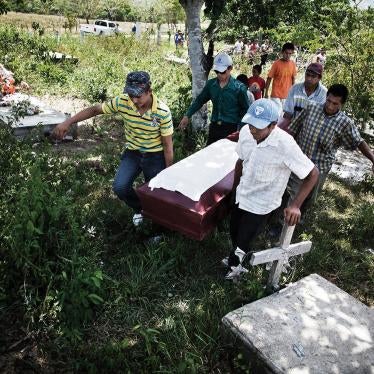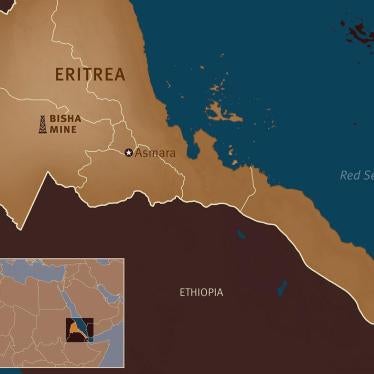In the midst of the economic crisis, the Bush administration has decided to spend its final days in office pushing for a trade agreement with Colombia that few Americans even know about. The White House has even suggested its support for an economic stimulus package during next week's lame-duck session may turn on Congress dropping its opposition to the Colombia deal.
Yet there are many important reasons why Congress delayed a vote on the US-Colombia Free Trade Agreement (FTA) earlier this year.
Colombia has for years had the world's highest rate of killings of trade unionists. As many as half of the unionists killed worldwide each year are Colombians -- more than 2,600 since 1986, according to the National Labor School, Colombia's leading labor rights organization. The suspected killers are often members of mafia-like paramilitary groups, which have had close ties to military, political and business figures. In 95 percent of cases, the killers have never been caught or prosecuted.
Free trade should be premised on fundamental respect for human rights, especially the rights of the workers producing the goods to be traded. This link between workers' rights and trade is recognized in recent US trade deals, including the proposed Colombia FTA, which require countries to meet certain minimum labor rights standards.
But Colombia is an exceptional case when it comes to labor rights. The violence there is so serious, and the lack of response by the authorities so overwhelming, that workers simply cannot exercise their rights. As President-elect Barack Obama has pointed out, the situation there would "make a mockery of the very labor protections that we have insisted be included in these kinds of agreements."
Congress should continue to delay consideration of the FTA until, in House Speaker Nancy Pelosi's words, Colombia shows "concrete and sustained results" in addressing the problem.
In fact, Congress's principled resistance to the Bush administration's efforts to rush a vote has prompted Colombia to take some steps in the right direction, including the creation of a specialized group of prosecutors to reopen many of the uninvestigated unionist killings. As a result, the number of convictions increased from around 10 per year to over 40 in 2007.
But it is far from clear whether this signals a meaningful shift in the pattern. If Congress caves in to Bush, prematurely approving the FTA, the progress could rapidly be undone.
The specialized prosecutors have yet to even open investigations into more than 1,500 of the reported killings. In high-profile cases, such as the investigation of former intelligence chief Jorge Noguera, who allegedly gave sensitive information about trade unionists to the killers, investigations have moved inexplicably slowly or have been hampered by procedural errors.
Senior officials continue to stigmatize legitimate union activity, portraying it as a cover for the abusive left-wing guerrillas. President Álvaro Uribe recently dismissed international concerns over the violence, describing the union members as "a bunch of criminals dressed up as unionists." (Uribe frequently makes such statements about those who criticize his policies, including, recently, a Human Rights Watch representative.) Given the history of anti-union violence in Colombia, his accusations against union members risk sending the message that the unionist killings are somehow justified.
Indeed, after dropping for a few years, the number of killings of trade unionists rose again this year, with 41 killed through October, compared with 33 through October of last year.
So far, to its credit, the Congress has insisted on examining the facts, and they remain ugly. Congress should continue to hold steady on the FTA, and work with President-elect Obama to design a policy for Colombia in which "free" trade is not built on dead worker representatives.
Kenneth Roth is the executive director of Human Rights Watch.







